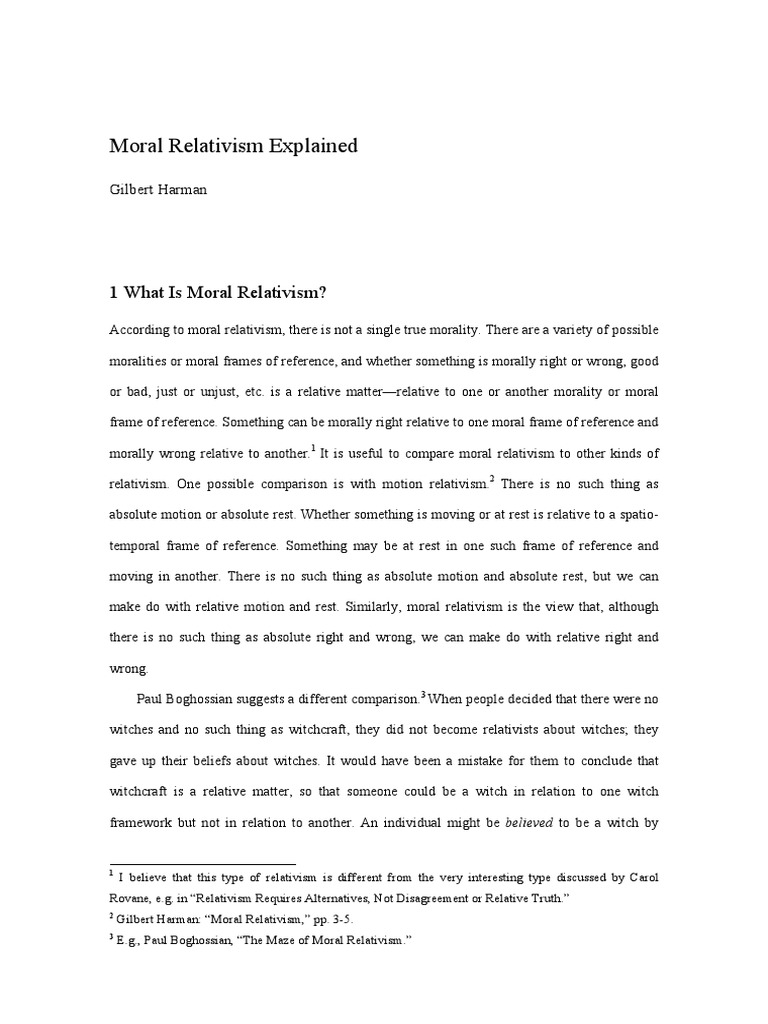In the realm of early childhood education, there exists a vibrant tapestry of pedagogical theories and practices that shape young minds. Among these, the concept of moral relativism introduces a fascinating dimension, challenging educators and caregivers to reconsider the frameworks through which they impart values. At its core, moral relativism posits that concepts of right and wrong are not universally applicable, but rather shaped by cultural, social, and individual circumstances. This perspective invites educators to cultivate an environment that acknowledges diverse moral landscapes while simultaneously promoting critical thinking and empathy.
To understand the importance of moral relativism in early childhood education, it is crucial to delve into the implications of this philosophical stance. Children are naturally curious beings, eager to explore their surroundings and forge connections with others. By embracing moral relativism, educators can create a space that encourages discussions about differing beliefs and values, illuminating the complex interplay between individual experiences and collective norms.
One of the primary promises of incorporating moral relativism into early childhood education is the enhancement of empathy among young learners. When children grasp that others may hold differing views shaped by their unique contexts, they develop a more nuanced understanding of the world. This realization can stimulate curiosity, prompting children to ask questions, seek answers, and engage in dialogues that are respectful and inquisitive. Such discussions often lead to richer interpersonal relationships, as children learn the significance of perspective-taking—an essential social skill for their future interactions.
Integrating moral relativism into curricula involves a deliberate shift in pedagogical approaches. Educators must move beyond traditional didactic methods of teaching morality, which may inadvertently promote a monolithic view of right and wrong. Instead, they can encourage exploratory learning, where children are invited to share their cultural backgrounds, familial values, and personal opinions. Storytelling, role-playing, and cooperative play are effective strategies that allow children to navigate moral dilemmas together, fostering collective inquiry and shared understanding.
Moreover, by incorporating diverse narratives that reflect a variety of moral perspectives, educators can pique children’s curiosity and inspire critical thought. For example, literature that presents characters facing moral dilemmas from different cultural backgrounds can serve as a springboard for discussions. Children can contemplate questions like, “Why might someone in a different culture make a different choice?” or “How do our backgrounds shape our decisions?” Such inquiries lead to profound learning experiences, as children explore the rich tapestry of human experiences.
Another significant aspect of moral relativism in early childhood education is its role in fostering inclusivity and dismantling stereotypes. By encouraging discussions about moral diversity, educators can create a classroom environment where every child feels valued and understood. This approach not only promotes acceptance but also empowers children to challenge biases and preconceived notions they may encounter in society. As they learn to appreciate the complexities of morality, children may become more adept at navigating social dynamics, standing against discrimination, and advocating for justice.
The impact of moral relativism extends beyond interpersonal relationships; it also influences children’s cognitive development. Engaging with moral relativistic concepts requires critical thinking, a skill that has become increasingly essential in today’s rapidly changing world. Children are prompted to analyze complex situations and evaluate varying perspectives, thereby honing their analytical capabilities. This cognitive engagement lays the groundwork for a generation equipped to tackle the multifaceted moral challenges that will inevitably arise in their lives.
Educators must also be mindful of the challenges inherent in discussing moral relativism. Navigating diverse moral viewpoints can be fraught with tension, especially when certain perspectives clash or contradict deeply held beliefs. To address this, educators should foster an atmosphere of psychological safety, where children feel comfortable expressing their thoughts without fear of judgment. This requires skillful facilitation, guiding children through disagreements with respect and curiosity, ultimately reinforcing the value of dialogue over divisiveness.
Parents and caregivers play a pivotal role in reinforcing the values introduced in the classroom. Collaboration between educators and families can ensure a cohesive approach to exploring moral relativism at home. By sharing experiences and engaging in discussions about morality, families can support their children in developing a holistic understanding of ethical complexities. This synergy not only enriches children’s learning experiences but also builds community bonds, as families share their unique cultural narratives and values.
The exploration of moral relativism in early childhood education serves as a mirror reflecting society’s values. It captures the essence of our increasingly globalized world, where interactions among individuals from diverse backgrounds are the norm rather than the exception. As such, educators must embrace this reality, creating curricula that encourage inquiry, reflection, and openness to difference. By doing so, they prepare children not just to coexist with others, but to thrive within the rich diversity of human society.
In conclusion, moral relativism in early childhood education promises a transformative shift in perspective, nurturing young minds capable of empathy, critical thinking, and inclusivity. By recognizing that moral beliefs are influenced by varied contexts, educators can foster curiosity and understanding in their students. This multifaceted approach prepares children for a diverse world, encouraging them to be thoughtful citizens who respect difference and engage in meaningful dialogue. As the landscape of education continues to evolve, the integration of moral relativism will serve as a vital cornerstone for shaping future generations.
